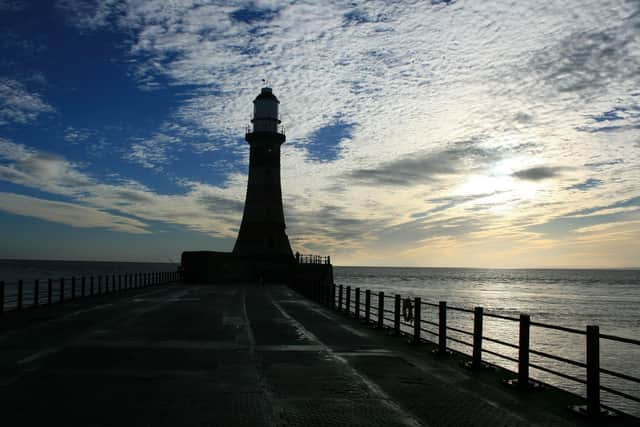Sunderland becomes 'City of Sanctuary' for those fleeing violence and persecution - but not without a political row
and live on Freeview channel 276
City of Sanctuary (CoS) is a charity working with towns and cities to create a network of support for refugees and others needing help.
With the support of its city council and community organisations, Sheffield became the UK’s first City of Sanctuary and since then, the movement has grown with a number of other local authorities joining.
Advertisement
Hide AdAdvertisement
Hide AdAt a full meeting of Sunderland City Council on Wednesday, June 22, a motion for Sunderland to follow suit won unanimous support.


The vote came during Refugee Week, with groups across the city coming together in support.
Councillor Claire Rowntree, deputy leader of the council, said the CoS motion promoted the inclusion and welfare of people in Sunderland fleeing violence and persecution.
Councillors heard that the sanctuary status gives access to resources, expert support and collaboration opportunities, including training, meetings and national events.
Advertisement
Hide AdAdvertisement
Hide AdCllr Rowntree added the motion was “not party-political but humanitarian” and aimed to make Sunderland a place where those in need are made to feel “safe and welcome”.
This includes challenging anti-refugee attitudes and “understanding the lived experience of refugees,” as well as creating opportunities to “form friendships and solidarity” within local communities.
Although the motion won support, it was not without a clash of words – and the debate saw criticism of local and national policy around refugees and asylum seekers.
A number of councillors pointed the finger at the Conservative national Government and noted its recent attempts to send asylum seekers to Rwanda.
Advertisement
Hide AdAdvertisement
Hide AdLiberal Democrat councillor Ciaran Morrissey also criticised Labour councillor Michael Mordey who, as a former deputy council leader in 2018, called on government to temporarily limit the number of asylum seekers being sent to stay in Sunderland.
Cllr Mordey, responding at full council this week, said this was linked to a “specific issue in the Roker Avenue area” and concerns at the time that the “clustering” of asylum accommodation was putting asylum seekers at risk, with houses becoming “targets for the far-right”.
The temporary measure, Cllr Mordey explained, aimed to make sure asylum seekers were safe while discussions took place with central government around how to better implement its asylum policy.
Conservative councillor Dominic McDonough, while voting for the Labour Party motion, said it “offered no real plan or solution for refugees coming to our city”.
Advertisement
Hide AdAdvertisement
Hide AdCllr McDonough added: “We do have people with legitimate worries about the strain on services that additional refugees can bring, and this is something that needs addressing as well as a greater understanding of the needs of refugees and assisting them in their integration into our communities.
“We should be speaking about the practical issues that bringing refugees to the city present and how we deal with those to ensure that refugees have everything they need to live a good life within our communities.”
The debate also saw speeches from council members reflecting on those affected by the recent conflict in Ukraine.
Conservative councillor Usman Ali said helping Ukranian refugees to settle in Sunderland should be viewed as essential and noted difficulties some refugees face around education, ‘language barriers’ and travel.
Advertisement
Hide AdAdvertisement
Hide AdLabour councillor Phil Tye also welcomed some of the “city’s newest residents” to the council meeting, a number of Ukrainian refugees including guests under the Homes for Ukraine scheme.
Cllr Tye praised council officers involved in the scheme and Together for Children, as well as paying tribute to the city’s churches and faith leaders.
Elsewhere, Labour councillor Juliana Heron reflected on her father’s journey as a refugee who left Poland to settle in the North East, adding he would later call himself a”Polish Mackem”.
Councillor Claire Rowntree, closing the debate, credited the “overwhelming level of support” from city councillors in Sunderland.
Advertisement
Hide AdAdvertisement
Hide AdThe deputy council leader added: “We have much more in common than that which divides us and this collective effort can only mean great things for our amazing city.”
Reverend Chris Howson, chair of Sunderland City of Sanctuary, said he was “delighted” with the support for the council motion.
Speaking after the council meeting, he added: “It is now down to all of us; neighbours, schools, companies, places of worship; to help build a culture of friendship across every aspect of our city.
“We need to challenge misconceptions and offer support in practical ways, strengthening the work of all those already working with refugees.”
The motion in full reads:
Notice of Motion – City of Sanctuary
This council recognises:
Advertisement
Hide AdAdvertisement
Hide Ad:: The need for our city to promote the welfare and inclusion of all people fleeing violence, persecution or who are isolated and seeking safety.
:: The positive contribution of refugees and those seeking asylum can make in our local communities across the whole city.
This council therefore resolves to:
:: Join the network of cities and towns which promote the inclusion and welfare of people fleeing violence, persecution and become a recognised “City of Sanctuary”.
:: Promote the inclusion and welfare of all who find themselves, homeless, destitute or isolated.
Advertisement
Hide AdAdvertisement
Hide Ad:: Continue to be a welcoming place of safety for all by encouraging integration, community cohesion and challenging discrimination of all kinds.
:: Continue to promote diversity through recognition and celebration of our different cultures across Sunderland.
:: To encourage other anchor institutions and key stakeholders to become part of the City of Sanctuary movement.